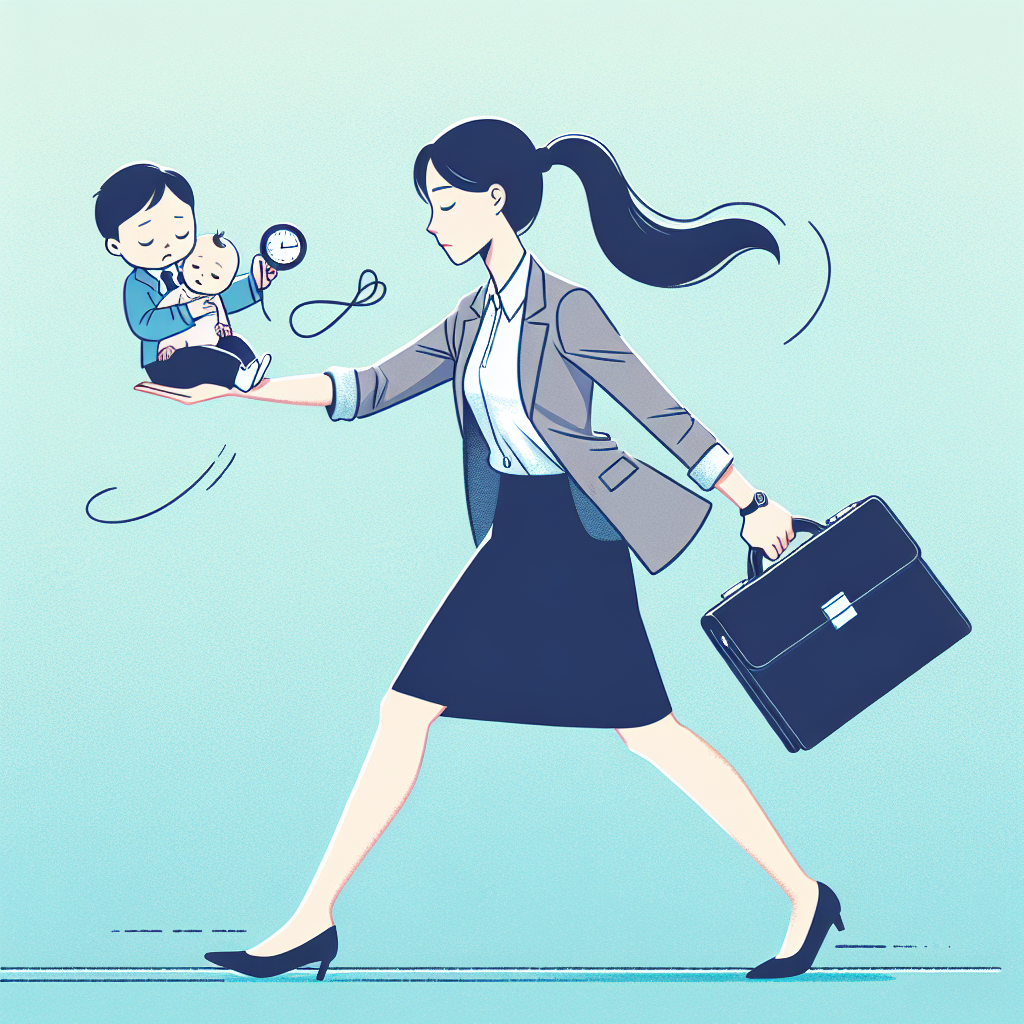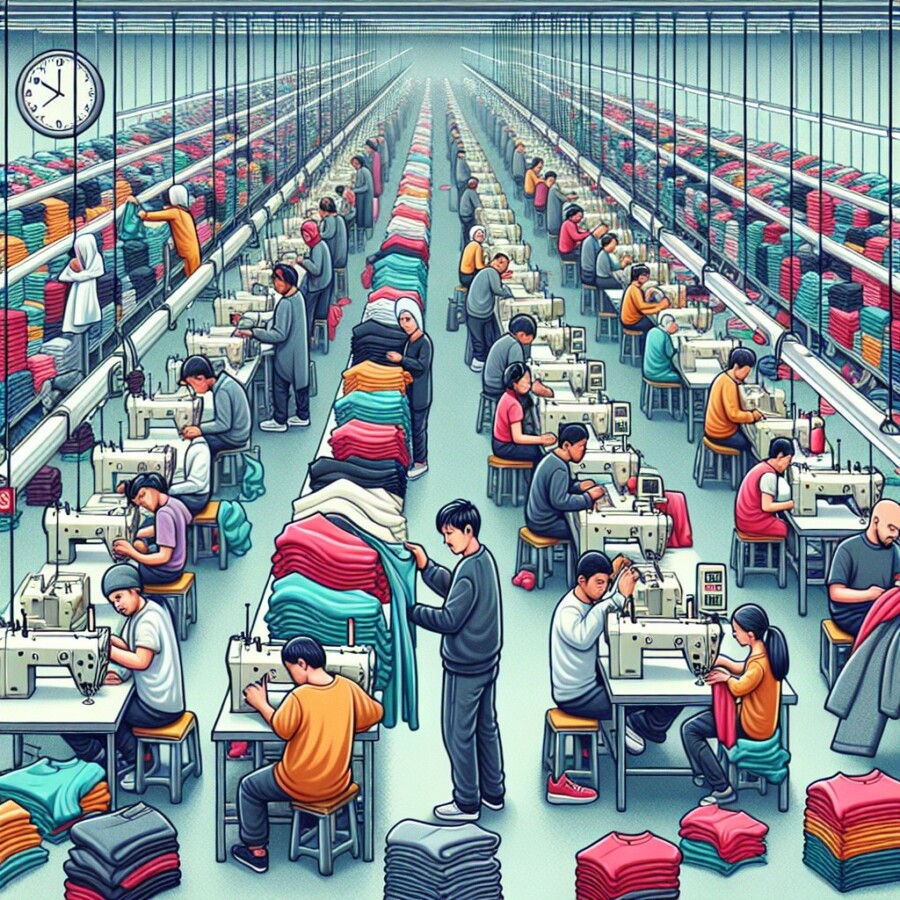South Korea has a big problem because not many babies are being born. It has the lowest number of babies being born in the whole world. If this keeps happening, there will be half as many people in South Korea by the year 2100. The government tried to give money to families to have more babies, but it didn’t work. Many women in South Korea decide not to have babies because it’s hard to find a good partner, work is very demanding, and living and going to school is very expensive.
One big reason women don’t want to have babies is that it’s hard to find a partner who wants to help take care of the kids and the house. People in South Korea work very long hours and always try to be better at their jobs, which makes it hard for women to have time for both work and family. Also, houses and schools cost a lot of money, so it’s hard for families to afford to have children.
The government tried to help by giving money to families to encourage them to have more babies, but it didn’t work. The President of South Korea, Yoon Suk Yeol, said that the old ways to try to fix this problem didn’t work and that it’s a big problem that needs new ideas. The government is thinking of new ways to help, but we don’t know yet if these new ideas will make women want to have more babies.
Original news source: Why South Korean women aren’t having babies (BBC)
🎧 Listen:
Slow
Normal
Fast
📖 Vocabulary:
| 1 | government | The group of people who make the rules in a country |
| 2 | encourage | To give someone support, courage, or hope |
| 3 | demanding | Asking for a lot of your time, attention, or effort |
| 4 | partner | Someone you are in a close relationship with, often helping each other |
| 5 | expensive | Costs a lot of money |
| 6 | afford | To have enough money to buy something |
| 7 | children | Young humans, not adults |
| 8 | President | The leader of a country |
| 9 | ideas | Thoughts or plans in your mind |
| 10 | families | Groups of people related to each other, usually parents and kids |
| 11 | problem | Something that is difficult and needs to be solved |
| 12 | population | The total number of people living in a place |
Group or Classroom Activities
Warm-up Activities:
– News Summary
Instructions:
1. Divide the class into pairs or small groups.
2. Give each group a copy of the article.
3. Ask the groups to read the article and summarize the main points in 3-4 sentences.
4. Have each group share their summary with the class.
– Opinion Poll
Instructions:
1. Divide the class into pairs or small groups.
2. Ask each group to come up with 3-4 questions related to the topic of the article (e.g. “Do you think the government should give money to families to have more babies?”).
3. Have each group take turns asking their questions to the rest of the class and recording their classmates’ opinions.
4. After all the questions have been asked, have each group share their findings with the class.
– Vocabulary Pictionary
Instructions:
1. Write down key vocabulary words from the article on separate pieces of paper.
2. Divide the class into pairs or small groups.
3. Give each group a set of vocabulary words.
4. Ask the groups to take turns choosing a word and drawing a picture to represent it.
5. The other groups have to guess the word based on the drawing.
6. After each round, have the groups switch the set of vocabulary words and continue playing.
– Pros and Cons
Instructions:
1. Divide the class into pairs or small groups.
2. Ask each group to discuss the pros and cons of having children in South Korea based on the information in the article.
3. Have each group present their findings to the class, highlighting both the advantages and disadvantages of having children in South Korea.
– Future Predictions
Instructions:
1. Ask the class to imagine they are living in South Korea in the year 2100.
2. Divide the class into pairs or small groups.
3. Ask each group to discuss and make predictions about what life will be like in South Korea in the future, considering the declining birth rate.
4. Have each group share their predictions with the class and discuss their reasoning behind their predictions.
🤔 Comprehension Questions:
1. Why does South Korea have a big problem with not many babies being born?
2. What might happen to the population of South Korea by the year 2100 if not many babies are born?
3. What did the government try to do to encourage families to have more babies?
4. Why do many women in South Korea decide not to have babies?
5. Why is it hard for women in South Korea to have time for both work and family?
6. Why is it hard for families in South Korea to afford to have children?
7. What did the President of South Korea say about the old ways to fix the problem?
Go to answers ⇩
🎧✍️ Listen and Fill in the Gaps:
South Korea has a big problem because not (1)______ (2)______ are being born. It has the lowest number of babies being born in the whole world. If this keeps happening, there will be half as many people in South Korea by the year 2100. The government tried to (3)______ money to families to have more babies, but it didn’t work. Many women in South Korea decide not to have babies because it’s (4)______ to find a good partner, work is very demanding, and living and going to (5)______ is very expensive.
One big reason women don’t (6)______ to have babies is that it’s hard to find a partner who wants to help take care of the kids and the house. People in South Korea (7)______ very long (8)______ and always try to be better at their jobs, which (9)______ it hard for women to have time for both work and family. Also, houses and schools cost a lot of money, so it’s hard for families to afford to have children.
The government tried to help by giving money to families to encourage them to have more babies, but it didn’t work. The President of South Korea, (10)______ Suk Yeol, (11)______ that the old ways to try to fix this problem didn’t work and that it’s a big problem that needs new ideas. The government is thinking of new ways to help, but we don’t (12)______ yet if these new ideas will make women want to have more babies.
Go to answers ⇩
💬 Discussion Questions:
Students can ask a partner these questions, or discuss them as a group.
1. What is the problem in South Korea with babies being born?
2. How would you feel if there were half as many people in your country in the future?
3. Do you think it’s important to have a good partner to help take care of children? Why or why not?
4. How do you think long working hours can make it difficult for women to have both a job and a family?
5. Do you think it’s fair that houses and schools cost a lot of money? Why or why not?
6. Do you think giving money to families is a good way to encourage them to have more babies? Why or why not?
7. What do you think are some new ideas the government could try to help solve this problem?
8. How do you think these new ideas could make women want to have more babies?
9. Do you think it’s important for the government to help families have more babies? Why or why not?
10. How do you think having more babies could benefit a country?
11. Do you think it’s important for children to have siblings? Why or why not?
12. What are some ways you think families can afford to have children, even if things are expensive?
Individual Activities
📖💭 Vocabulary Meanings:
Match each word to its meaning.
Words:
1. government
2. encourage
3. demanding
4. partner
5. expensive
6. afford
7. children
8. President
9. ideas
10. families
11. problem
12. population
Meanings:
(A) Costs a lot of money
(B) The group of people who make the rules in a country
(C) The total number of people living in a place
(D) The leader of a country
(E) To have enough money to buy something
(F) Young humans, not adults
(G) To give someone support, courage, or hope
(H) Thoughts or plans in your mind
(I) Groups of people related to each other, usually parents and kids
(J) Someone you are in a close relationship with, often helping each other
(K) Something that is difficult and needs to be solved
(L) Asking for a lot of your time, attention, or effort
Go to answers ⇩
🔡 Multiple Choice Questions:
1. What is the problem that South Korea is facing?
(a) There are too many babies being born
(b) People are working too much
(c) Not many babies are being born
(d) Houses and schools are too expensive
2. What could happen if not many babies are born in South Korea?
(a) The population will double by 2100
(b) The government will give more money to families
(c) The President of South Korea will resign
(d) There will be half as many people in South Korea by 2100
3. Why do many women in South Korea decide not to have babies?
(a) It’s hard to find a good partner, work is demanding, and living and going to school is expensive
(b) They don’t like children
(c) They want to focus on their careers
(d) The government doesn’t want them to have babies
4. What is one reason why it’s hard for women in South Korea to have time for both work and family?
(a) They don’t have enough money
(b) People in South Korea work long hours and try to be better at their jobs
(c) They don’t want to have children
(d) They don’t have a good partner
5. Why is it hard for families in South Korea to afford to have children?
(a) The government doesn’t give money to families
(b) People in South Korea don’t want to have children
(c) The President of South Korea doesn’t like children
(d) Houses and schools cost a lot of money
6. What did the government try to do to encourage families to have more babies?
(a) Give money to families
(b) Give money to schools
(c) Give money to companies
(d) Give money to the President
7. What did the President of South Korea say about the old ways to fix the problem?
(a) They worked perfectly and no changes are needed
(b) They were too expensive
(c) They didn’t work and new ideas are needed
(d) They didn’t try any old ways to fix the problem
8. What is the government doing to try to help with the low birth rate?
(a) Doing nothing
(b) Thinking of new ways to help
(c) Giving up on the problem
(d) Asking other countries for help
Go to answers ⇩
🕵️ True or False Questions:
1. If the low birth rate continues, there will be twice as many people in South Korea by the year 2100.
2. The government successfully provided money to families to encourage them to have more babies.
3. People in South Korea work long hours and focus on their jobs, making it challenging for women to balance work and family.
4. South Korea has the lowest number of babies being born in the whole world.
5. One reason women don’t want to have babies is that it’s hard to find a partner who will help take care of the kids and the house.
6. Houses and schools in South Korea are expensive, making it difficult for families to afford to have children.
7. The President of South Korea, Yoon Suk Yeol, said that the old ways to solve the problem were effective, and no new ideas are necessary to address the low birth rate.
8. Many women in South Korea choose to have babies because it’s easy to find a good partner, work is not demanding, and living and going to school are affordable.
Go to answers ⇩
📝 Write a Summary:
Write a summary of this news article in two sentences.
Check your writing now with the best free AI for English writing!
Writing Questions:
Answer the following questions. Write as much as you can for each answer.
Check your answers with our free English writing assistant!
1. Why does South Korea have a big problem with not many babies being born?
2. What did the government try to do to encourage families to have more babies?
3. Why do many women in South Korea decide not to have babies?
4. Why is it hard for women in South Korea to have time for both work and family?
5. What did the President of South Korea say about the old ways to fix the problem?
✅ Answers
🤔✅ Comprehension Question Answers:
1. Why does South Korea have a big problem with not many babies being born?
South Korea has a big problem with not many babies being born because people are choosing to have fewer children.
2. What might happen to the population of South Korea by the year 2100 if not many babies are born?
If not many babies are born, the population of South Korea might be half as many people by the year 2100.
3. What did the government try to do to encourage families to have more babies?
The government tried to give money to families to encourage them to have more babies.
4. Why do many women in South Korea decide not to have babies?
Many women in South Korea decide not to have babies because it’s hard to find a good partner, work is demanding, and it’s expensive to live and go to school.
5. Why is it hard for women in South Korea to have time for both work and family?
It’s hard for women in South Korea to have time for both work and family because they work long hours and always try to be better at their jobs.
6. Why is it hard for families in South Korea to afford to have children?
It’s hard for families in South Korea to afford to have children because houses and schools cost a lot of money.
7. What did the President of South Korea say about the old ways to fix the problem?
The President of South Korea said that the old ways to fix the problem didn’t work and that new ideas are needed to solve the problem.
Go back to questions ⇧
🎧✍️✅ Listen and Fill in the Gaps Answers:
(1) many
(2) babies
(3) give
(4) hard
(5) school
(6) want
(7) work
(8) hours
(9) makes
(10) Yoon
(11) said
(12) know
Go back to questions ⇧
📖💭✅ Vocabulary Meanings Answers:
1. government
Answer: (B) The group of people who make the rules in a country
2. encourage
Answer: (G) To give someone support, courage, or hope
3. demanding
Answer: (L) Asking for a lot of your time, attention, or effort
4. partner
Answer: (J) Someone you are in a close relationship with, often helping each other
5. expensive
Answer: (A) Costs a lot of money
6. afford
Answer: (E) To have enough money to buy something
7. children
Answer: (F) Young humans, not adults
8. President
Answer: (D) The leader of a country
9. ideas
Answer: (H) Thoughts or plans in your mind
10. families
Answer: (I) Groups of people related to each other, usually parents and kids
11. problem
Answer: (K) Something that is difficult and needs to be solved
12. population
Answer: (C) The total number of people living in a place
Go back to questions ⇧
🔡✅ Multiple Choice Answers:
1. What is the problem that South Korea is facing?
Answer: (c) Not many babies are being born
2. What could happen if not many babies are born in South Korea?
Answer: (d) There will be half as many people in South Korea by 2100
3. Why do many women in South Korea decide not to have babies?
Answer: (a) It’s hard to find a good partner, work is demanding, and living and going to school is expensive
4. What is one reason why it’s hard for women in South Korea to have time for both work and family?
Answer: (b) People in South Korea work long hours and try to be better at their jobs
5. Why is it hard for families in South Korea to afford to have children?
Answer: (d) Houses and schools cost a lot of money
6. What did the government try to do to encourage families to have more babies?
Answer: (a) Give money to families
7. What did the President of South Korea say about the old ways to fix the problem?
Answer: (c) They didn’t work and new ideas are needed
8. What is the government doing to try to help with the low birth rate?
Answer: (b) Thinking of new ways to help
Go back to questions ⇧
🕵️✅ True or False Answers:
1. If the low birth rate continues, there will be twice as many people in South Korea by the year 2100. (Answer: False)
2. The government successfully provided money to families to encourage them to have more babies. (Answer: False)
3. People in South Korea work long hours and focus on their jobs, making it challenging for women to balance work and family. (Answer: True)
4. South Korea has the lowest number of babies being born in the whole world. (Answer: True)
5. One reason women don’t want to have babies is that it’s hard to find a partner who will help take care of the kids and the house. (Answer: True)
6. Houses and schools in South Korea are expensive, making it difficult for families to afford to have children. (Answer: True)
7. The President of South Korea, Yoon Suk Yeol, said that the old ways to solve the problem were effective, and no new ideas are necessary to address the low birth rate. (Answer: False)
8. Many women in South Korea choose to have babies because it’s easy to find a good partner, work is not demanding, and living and going to school are affordable. (Answer: False)
Go back to questions ⇧















